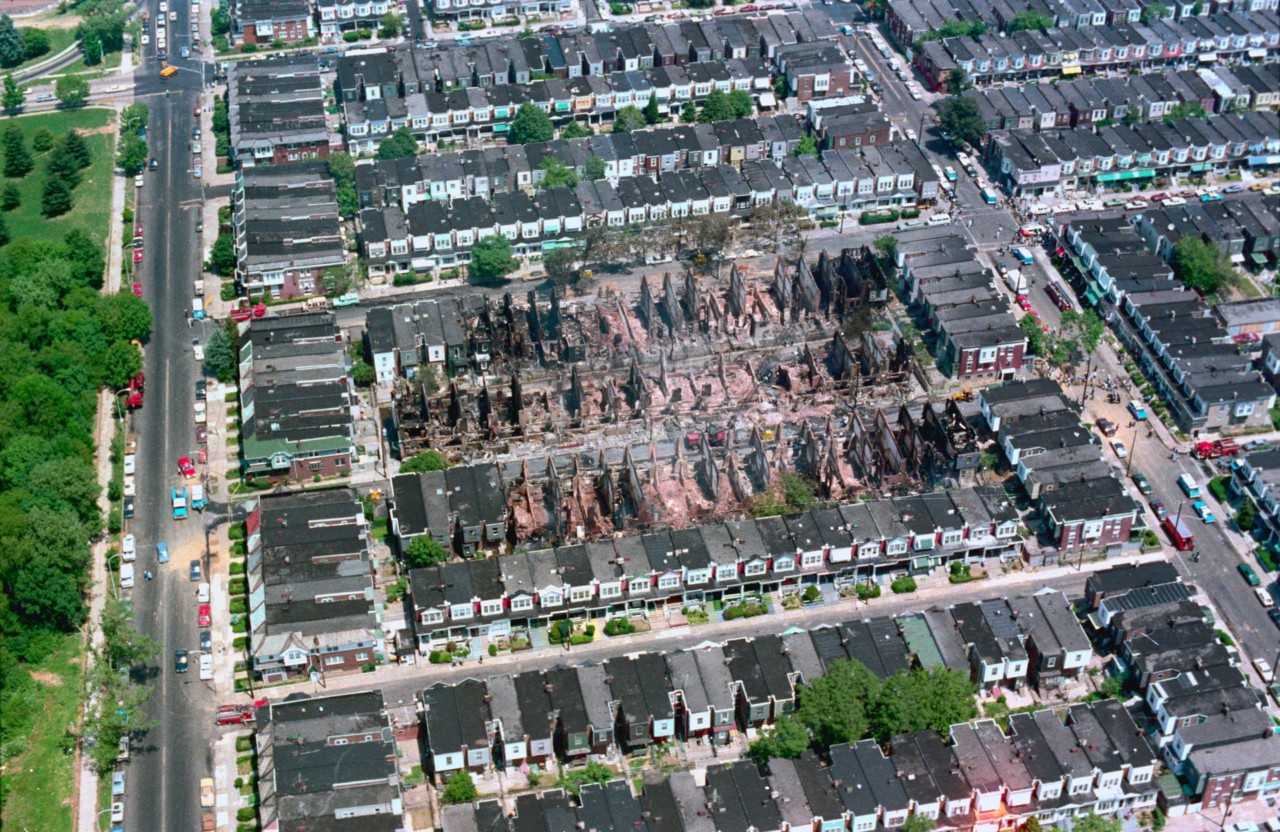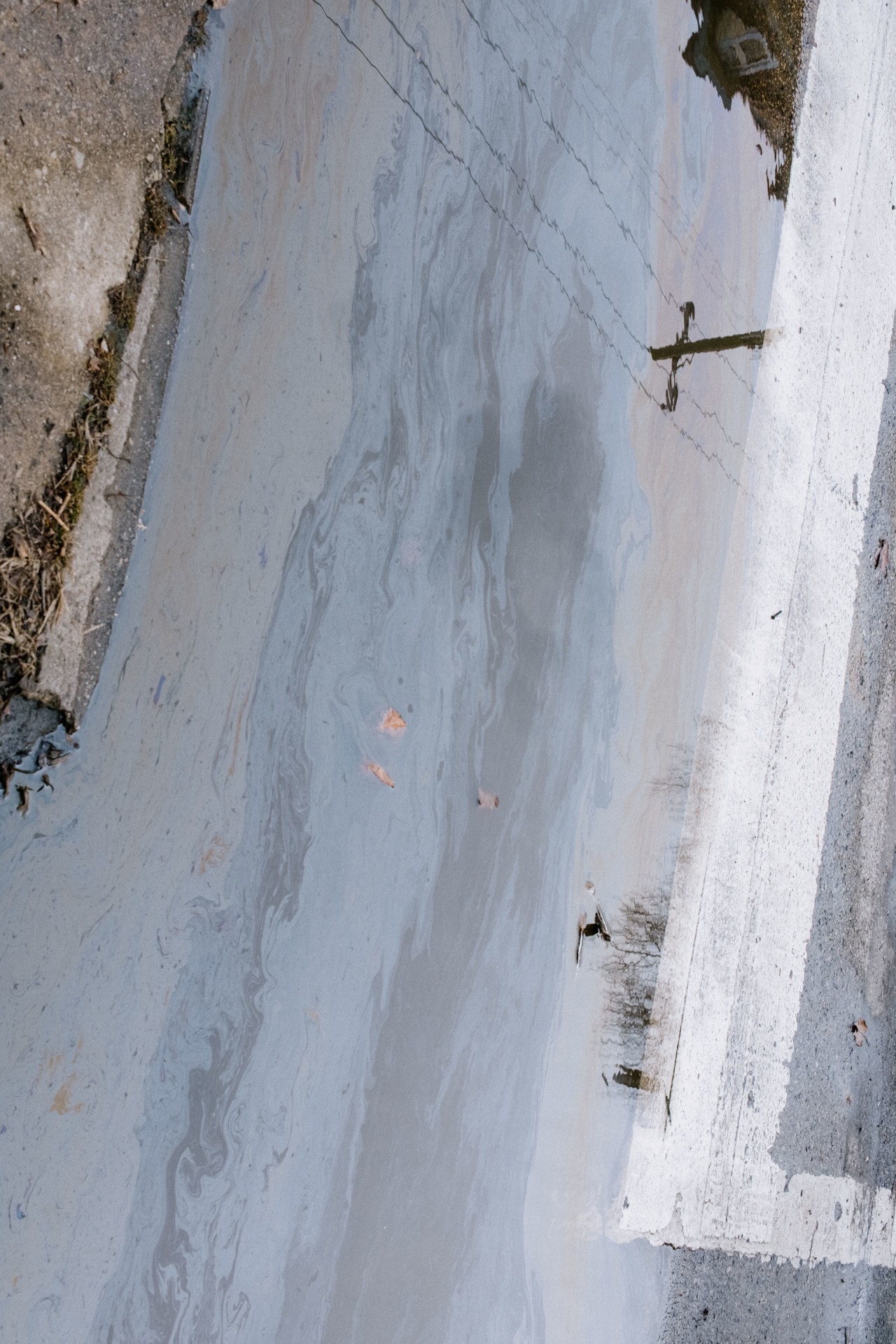

words by mike africa jr (as told to yessenia funes)
photographs by marcus maddox
I’ve heard enough stories about John Africa to last a lifetime. He was a Korean War veteran who witnessed firsthand the destruction of life. The same bullets and bombs that crater mountains and villages also pollute rivers and destroy men. Witnessing this destruction also carved an understanding into his mind about the system. John Africa returned to the US with a drive to challenge the status quo—a passion to protect life. Nearly two decades later, he founded the MOVE Organization in 1972 in Philadelphia to expose the injustices that infringe on the freedom, protection, and safety of people, animals, and the environment itself.
In the early days of MOVE, someone asked John Africa why he didn’t comb his hair. “If you breathe the smoke from the smokestack from the industry that makes combs, I’ll comb my hair,” he said. That response was emblematic of John Africa. He kept it simple—but he always kept it real.
How many of us actually think about where our items come from? Something as seemingly simple as a comb is destructive if you live next to the plastic refinery manufacturing it. Refusing to buy a comb became revolutionary through this lens. So did embracing the knotty curls. John Africa understood that. And he understood that all life is affected by man-made factories and weapons. The people living nearby aren’t the only ones who suffer—so do the trees, the air, the rivers, and the fish. For John Africa and other MOVE members (including myself), all life is sacred and connected.
That’s why MOVE spoke up against police brutality, unjust prison sentences, lying politicians, and encaged animals at the zoo. All these issues stem from the same problem: a diminishment of life. Our belief and love for life ultimately made us a target. The powers-that-be recognized the power in our words, the power of our ability to live outside the existing societal structures that force consumption and toxins down our throats. So, they tried to eliminate us.


In 1978, police initiated a shootout that left one officer dead. My parents, Debbie and Mike Africa Sr, were arrested on third-degree murder charges despite being innocent. My mom was pregnant with me. She gave birth to me five weeks later, in the Philadelphia House of Correction. On May 13, 1985, the situation escalated. The Philadelphia Police Department—in partnership with the FBI and state police—dropped a bomb on the MOVE Organization’s headquarters. Eleven people died that day, including five children of MOVE.
Our simple belief—that all life is sacred—put us on a crash course with the system. We weren’t trying to hurt anyone, but we also wouldn’t let the police intimidate us into silence and complacency. We just wanted to live in sync with the Earth. We followed John Africa’s religion of “Life,” which taught us that life is the origin of everything: It’s what binds us to one another, that essence circulating inside us, the dirt, the stars.
Somehow, our dreadlocks and black skin made our beliefs threatening. And people died because of that fear. My parents lost 40 years of freedom, all for being what society would now call “environmentalists.” We never called ourselves “environmentalists” or “activists.” We called ourselves revolutionaries.
I can’t remember when I began to think of myself this way. I always knew that this was bigger than myself. There was never a time I didn’t know that. My maternal grandmother, who was also a MOVE member, made sure to pass on John Africa’s teachings, especially around nature and its gifts. She’d always take me to Fairmount Park, which is the largest urban green space in the US. As a child, I’d spend a lot of time with my grandmother there. She’d hold my hand as we walked along the grassy grounds, pointing out the variety of trees and plants. Together, we’d pick fresh apples and pears off the branches. We’d pull scallions straight out of the ground. We’d also gather walnuts.

Life is not trash. Don’t put the apple core in the trash can. Put it in the life bucket! Before you put that bottle in the recycle bin, take the top off. Free the air! Don’t throw a bottle full of water in the trash. Pour the water into the earth first. The water don’t supposed to be trapped inside of a container where it can’t be free.
Like my grandmother, John Africa had a special connection to nature. Anything that was alive and natural, he felt was necessary and needed. Something unnatural, however, alarmed him. That’s why we avoid genetically modified seedless foods, as well as foods that are overly processed. John Africa helped us understand the power of nourishing our bodies, of prioritizing our health. Health is natural. You can’t create it in a lab. Health comes from nature and nowhere else.
In John Africa’s weekly study sessions, he’d help MOVE members understand this in simple lessons. He didn’t have to say too much. His words could be as simple as: “That’s not in season. Why are you eating that?” Eating according to the season is key to our health, too. If we are in the middle of winter, we understand the absurdity of eating a summertime berry. We were also taught that no matter the season, we should eat food grown locally, not exotic fruit grown in some foreign land.
We now understand as a society that transporting food makes up only 11 percent of a product’s emissions. In fact, research has shown that what we eat impacts our carbon footprint more than where it comes from. Carbon emissions aren’t everything to MOVE; respecting community, health, and life is. Altering food to prolong its shelf life is unacceptable to us. We were taught to eat raw, natural foods free of pasteurization and irradiation, which are often necessary to transport perishable foods over long distances. We avoid food that’s been treated with chemicals, gases, or waxes to extend its shelf life.
This is another advantage of eating locally. Even more preferable is eating food we’ve grown ourselves. Eating freshly picked fruits and vegetables means eating more nutrient-rich foods. MOVE members didn’t always have the data to support our beliefs, but we had common sense—and an appreciation of life. Nowadays, farmers’ markets and community-supported agriculture have grown in popularity. It’s a change that signals a societal awakening—but where was the support when MOVE was doing all of this? Where was the national outcry when we were killed for living this way?
Neighbors seemed especially disturbed by our dedication to reusing our so-called waste. We didn’t send our food scraps to a landfill. Every MOVE member has a bucket or container to hold their food scraps. People call this a compost bucket, but I grew up calling it a “life bucket.” When the bucket would fill, MOVE members lucky enough to have a yard would dig a hole in the ground and dump the remains there. Then, we’d reuse the soil to organically fertilize our yards.
We used to just dump the food scraps on the ground, but the neighbors didn’t approve. What we viewed as life, they viewed as garbage. That’s offensive because, to MOVE members, even the peels and scraps are important. Once we started digging holes, the conspiracies and complaints continued. People assumed we were building tunnels, a lie the police used as an excuse to attack us.
MOVE prides itself on avoiding waste of all forms—not just food. In the early days, the organization avoided buying furniture. If we did, it was usually second-hand. The MOVE HQ used a long tree branch for seating. We’d create makeshift plates out of paper bags to scatter and crack nuts on. Or we’d burn the paper for heat in the winter. We’d buy in bulk and use reusable containers made out of glass, wood, or cardboard.
No matter how hard we tried to live in sync with the Earth, we were persecuted. MOVE members see a direct connection between our efforts to protect the environment and dismantle the status quo and the way we were treated by police, politicians, and the courts. A single ruling can echo for decades.
John Africa wrote about this in the “Judge’s Letter,” his writings about the true interests of the judicial system. The courts determine who’s innocent, who’s guilty, and the consequences. This is the system that wrongfully incarcerated my parents and seven other MOVE members. It’s the same system that allows companies like DuPont and Monsanto to get away with poisoning people with their chemical products. These companies groom their own employees to become lawyers and lobbyists, eventually making their way into governmental bodies so they can protect the corporations that are producing toxicity. Society likes to think the courts are upholding the law—but they can be outlaws themselves. They allow industrialists to pollute the Earth while throwing innocent poor people behind bars. The courts are a tool of industry. And industry is interested in exploiting natural resources for its own greed. Everything on the planet—and Earth itself—is endangered, and the courts are the gateway to this endangerment.
The courts are the tools of industrial plague, granting big business privilege to poison our Earth.

These beliefs—these truths—put MOVE at risk. Our efforts to defend the land and all of its life made us targets. Around the world, others living their truth and fighting to protect nature are suffering similar fates. In 2020, at least 228 environmental land defenders were killed. Environmentalists are some of the most harshly treated activists ever. Earth First! comes to mind here.
Judi Bari was an environmentalist, feminist, anarchist, and principal organizer of Earth First!, an environmental organization founded in 1980. She campaigned against logging in the ancient redwood forests of northern California. On May 14, 1990, she and fellow environmentalist Darryl Cherney suffered injuries after a pipe bomb under Bari’s car seat exploded. Instead of working to find the perpetrators, the FBI arrested Bari and Cheney, alleging the two activists were illegally transporting the explosives.
More than 30 years after that bombing, the FBI still targets peaceful environmental activists in terrorist investigations. This is wrong and indicative of the ongoing struggle MOVE members and our supporters face.
We’re still fighting for justice today—for my family who was murdered, for the countless others wrongly incarcerated, for the voiceless plants and animals, for a future where life is valued. I have four children of my own. They join when MOVE members gather to talk about the practices and teachings of John Africa. We hope to buy land someday, start a farm, and grow our own vegetables. We are working toward making John Africa’s vision come true and dismantling the system that exploits life.
We are focused on tending the garden that is our lives. We’ve been wounded, but we haven’t been stopped. We’re still On a Move.
Editor’s note: Atmos attempted to identify all people depicted in the archival due to insufficient records.photography sourced for this story. Unfortunately, identification was not possible.
On a Move














